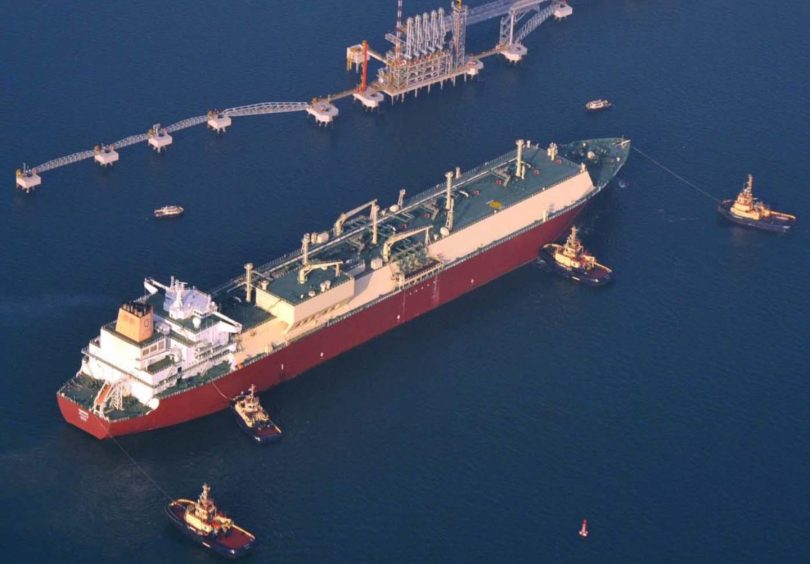The Port of Milford Haven in Wales received a delegation of potential international investors for a two-day visit ahead of confirmation that the case to offer tax incentives as part of the Celtic Freeport initiative has gone ahead.
The Celtic Freeport is trying to attract investment into both large and small-scale low-carbon energy projects via a package of fiscal incentives and supportive skills programmes. The port is expected to be at the centre of many of these initiatives, with the Milford Haven waterway supporting around 20% of the UK’s energy needs, according to a spokesperson for the Milford Haven Port Authority.
A spokesperson told Energy Voice that a number of local operators – including the South Hook LNG and fuel terminals, the Pembroke power station, the refinery and brownfield land developers – were progressing alternative fuel and hydrogen production projects, alongside carbon dioxide (CO2) shipping. The Port of Milford Haven had also recently completed an overhaul of Pembroke Dock to create a marine renewables terminal, with further development opportunities in-and-around that site, the spokesperson added.
The investor and developer delegation confirmed by the port at the start of the month had been looking at the port’s role in supporting the development of alternative fuels, renewable energy – particularly floating offshore wind – CO2, micro-grid and battery projects.
“As the UK’s leading energy port, we have a unique proposition that integrates the current energy facilities operating here with developers of new technologies,” stated the Port of Milford Haven’s chief executive, Tom Sawyer.
Alongside representatives from the Port of Milford Haven, Pembrokeshire County Council, RWE, Dragon LNG and the Celtic Freeport, the delegation consisted of representatives from Anodox, Castlepines, FEV, Fusion Fuel, GE Capital, Quinbrook, Naked Energy, Nexsolar and Self Energy.
The investor delegation’s visit comes as the freeport prepares to become operational.
Following the visit., Pembrokeshire County Council approved the full business case for the Celtic Freeport. The approval provides more certainty on the structure of the incentives available.
The port authority spokesperson added that the Celtic Freeport tax sites are due to go live later in the fourth quarter of 2024.
Most of the development footprint sits within the proposed Milford Haven tax site, according to the port authority spokesperson, who pointed to HM Revenue & Customs (HMRC) documents on freeports for information on the proposed tax reliefs and financial incentives on offer.
This sector initiative, which spans several locations across South Wales and entails a partnership between private and public sector players, is aimed at unlocking economic growth and green energy potential by attracting global investment to the region.
How does the freeport work?
Certain tax and customs rules do not apply within freeport customs sites. Freeports can also have up to three designated tax sites, which are separately authorised but can cover the same areas as freeport customs sites.
Authorised businesses operating within the freeport customs site can use imported goods in manufacturing or storage without the requirement to pay import or excise duties in cases where certain conditions are met.
Eligible businesses in freeport tax sites, meanwhile, can benefit from tax incentives including enhanced capital allowances and employer National Insurance contributions for new employees.
In addition, the Welsh government has proposed offering specific tax incentives for freeports in Wales, though these have yet to be finalised and were under review by the Subsidy Advice Unit as of late September.
The Welsh and UK governments agreed to establish two freeports in the country in 2022 following an expansion of the tax-incentive concept by the previous Conservative administration in Westminster.
Last year, Wales confirmed the sites would be the Celtic Freeport covering Milford Haven and Port Talbot, and the Anglesey Freeport in North Wales.
Both freeports aim to attract £4.9 billion in public and private investments, with the potential to create around 20,000 jobs by 2030.
Recommended for you




 © PA
© PA






